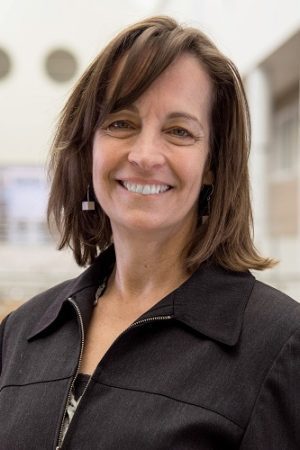Kelly Carlson-Reddig

Kelly Carlson-Reddig
Kelly Carlson-Reddig is an Associate Professor of Architecture. She completed her undergraduate Bachelor of Architecture at Texas Tech University in 1986 and her graduate Master of Environmental Design at Yale University in 1992. Her scholarship focuses primarily on the conceptual dimensions of architecture’s materiality, tectonics, and architectural “marks,” and has been articulated in papers such as “Students Consider Architecture’s Materiality”—JAE, “Stance and Circumstance: Intentional Materiality”—ACSA, and “detail, Detail, Ornament, decoration: A Taxonomy”—ACSA. Her teaching spans advanced level architectural design studios, including the Graduate Integrated Project, Materials and Methods, and advanced critical practice/technology electives including “MARK,” “Critical Artful Materiality Tectonics,” and “In the Details.” She Chaired the National ACSA Technology Conference entitled “’Souped-Up’ and ‘UnPlugged’: Perspectives on Architectural Technology.” During her tenure at UNC Charlotte, she developed two lecture series’–“Architecture’s Materiality” and “BEYOND CENTER: Diversity in Architecture.” She served as Associate Director of the School of Architecture for 8 years. She served several terms as national Secretary and Treasurer for Tau Sigma Delta, an architecture honor society. Her current initiatives are focused on curriculum reform related to the Climate Emergency.
EXPLORE HER RECENT WORK
MARKS: Carlson-Reddigs researches the material, haptic, and aesthetic realms of the “MARK” in the context of architecture. MARKS in architecture arise at the intersection of materiality and technique and are conceived through design and realized in the acts of making, craft, construction, fabrication, and assembly.
“Margin & Text – Voices on the Verge Intro”: In response to our history there has emerged an insistence among majority architects (which is almost all of us) that difference doesn’t matter – that we don’t see people in terms of skin color, ethnicity, nationality, socioeconomics, politics, gender identification, etc. Hence this publication, a collection of the 2020-21 lecture series at the School of Architecture at the University of North Carolina, Charlotte. While the speakers were exceptionally diverse – each a unique manifestation of their profession – their tone, without exception, was positive and forward-looking. Their words are insightful, determined, hopeful and generous, and their message to the profession in all its guises should be both internalized and broadcast.